Iran, Bolivia Agree To Forge Bilateral Cooperation
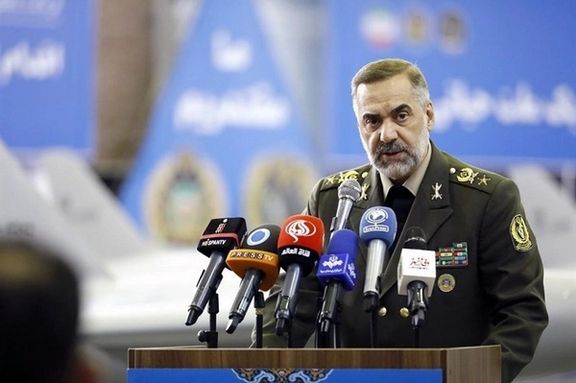
The defense ministers of Iran and Bolivia signed an agreement to strengthen bilateral cooperation in the areas of defense and security.

The defense ministers of Iran and Bolivia signed an agreement to strengthen bilateral cooperation in the areas of defense and security.
Speaking at the ceremony on Thursday, Iranian Defense Minister Mohammad Reza Ashtiani emphasized the significance of Latin American nations in Iran's foreign and defense policy. He claimed that these countries occupy a special place in Iran's strategic outlook, prompting the desire to forge closer ties with Bolivia in particular.
“In light of Bolivia's critical requirements in border defense and the fight against drug trafficking, we actively sought to establish collaborations in equipment and expertise with the country. This cooperative endeavor has the potential to serve as a pioneering model for other nations in South America,” Ashtiani said.
Meanwhile, the Minister of Defense of Bolivia, Edmundo Novillo Aguilar, acknowledged his country's concerns regarding drug smuggling and border control, highlighting the importance of external cooperation to address these pressing issues effectively.
Iran's pursuit of defense partnerships in the region has raised eyebrows due to its historically opaque behavior on the international stage. There are fears that the motives behind these engagements might extend beyond genuine cooperation and could involve the export of radical ideologies and the dissemination of unconventional arms and technologies.
Of particular concern is Iran's track record of supporting extremist groups and engaging in proxy warfare in other parts of the world. There are apprehensions that Iran may seek to exploit defense cooperation with South American nations as a means to advance its interests, extend its influence, and potentially interfere in regional affairs. Its growing encroachment on the continent is of particular worry to the US.

Iran's IRGC navy commander warned that Tehran would retaliate against any oil company involved in unloading Iranian oil from a seized tanker.
Alireza Tangsiri issued the warning as US prosecutors struggled to auction seized Iranian oil from a Greek tanker near Texas.
According to a report by The Wall Street Journal on Tuesday, the auctioning of 800,000 barrels of seized Iranian oil has been met with reluctance from US companies due to fears of Iranian retaliation. Companies with exposure in the Persian Gulf region are particularly wary, with concerns that they could become targets of Iranian aggression.
"We hold the oil company that wants to unload our oil from this ship responsible, and we also hold Washington responsible," Tangsiri declared.
The standoff sheds light on the complexities and challenges faced by the US government in enforcing sanctions against Iran. Iran's increased attacks against Western shipping interests serve as a deterrent to interdicting Iranian exports, making it difficult for the US to proceed with the auction of the seized oil.
In recent months, Tehran's military forces have hijacked several Western tankers in what is seen as retaliation for previous Western seizures of Iranian oil. This ongoing cycle of aggression has escalated tensions in the region and poses significant difficulties for the international community in maintaining stability and maritime security.
In response to the escalating situation, the US Defense Department announced on Monday that it would deploy F-35 jet fighters and a Navy destroyer to the Middle East. The deployment aims to deter further Iranian seizures of tankers and to address Russian aggression in the region.
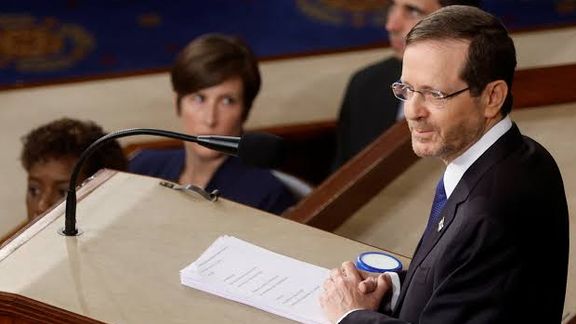
On a high profile visit to the United States, Israel’s President Isaac Herzog called Iran “the greatest challenge Israel and the United States face at this time”.
Referring to the regime’s ongoing development of its nuclear program, he told the joint session of the US Congress: “Let there be no doubt: Iran does not strive to attain nuclear energy for peaceful purposes. Iran is building nuclear capabilities that pose a threat to the stability of the Middle East and beyond.”
Meanwhile, the UK’s Foreign Secretary, James Cleverly, echoed his sentiments at a fireside chat in Aspen, US, in which he said the UK is committed to working with its allies in the US, Europe and the Middle East “to ensure that we never see a nuclear-armed Iran”.
Both leaders stressed the global threats Iran poses, from its proxies across the Middle East to its foiled attacks in countries including at least 15 in the UK alone, as well as recent plans to attack Jewish and Israeli targets in Greece, Cyprus and Azerbaijan.
“Every country or region controlled or infiltrated by Iran has experienced utter havoc,” Herzog said. “We have seen this in Yemen, in Gaza, in Syria, in Lebanon, and in Iraq. In fact, we have seen this in Iran itself where the regime has lost its people, and is suppressing them brutally.”
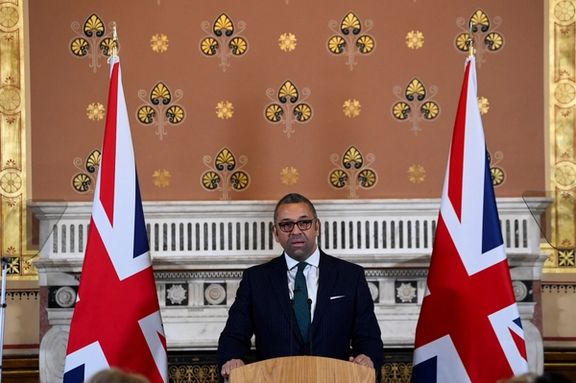
The two leaders were speaking as the UK had imposed yet further sanctions on the country, ramping up on several months of penalties for both ongoing nuclear activity and the brutal suppression of protesters since September’s uprising in the wake of the death in morality police custody of Mahsa Amini.
“We maintain a tough and robust position towards Iran and that will remain our position,” Cleverly said. “If Iran does not like the UK’s response, then Iran needs to change its behavior. Our actions are in response to their behavior.”
Herzog also raised the issue of Iran’s arming Russia in its war in Ukraine, a claim the regime denies but more recently, evidence has shown the cooperation continues, and now it has been revealed that the two nations are building a joint weapons plant.
He said: “Iran has spread hatred, terror, and suffering throughout the Middle East and beyond, adding fuel to the disastrous fire and suffering in Ukraine.”
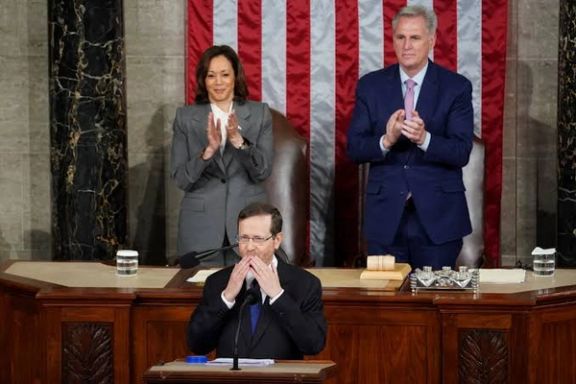
The Israeli President addressed in candid detail the threat posed to the Middle East’s only democracy. “Iran is the only nation on the planet publicly calling, plotting, and developing means to annihilate another nation, a member of the family of nations, the State of Israel. Israel has no border with Iran. Israel has no resources contested by Iran. Israel has no conflict with the Iranian people. And yet, the Iranian regime – together with its proxies throughout the Middle East – is aiming and working towards destroying the State of Israel, killing the Jews, and challenging the entire free world,” he told Congress.
He said that allowing Iran to become a nuclear threshold state, “whether by omission or by diplomatic commission, is unacceptable”, calling on the world not to remain indifferent to the Iranian regime’s call to wipe Israel off the map.
“Tolerating this call and Iran’s measures to realize it, is an inexcusable moral collapse,” he said, calling on the US to work with the Jewish state to prevent Iran’s fundamental threat to international security.
“I am here to reiterate what every Israeli leader has declared for decades: the State of Israel is determined to prevent Iran from acquiring nuclear weapon capabilities,” he added.
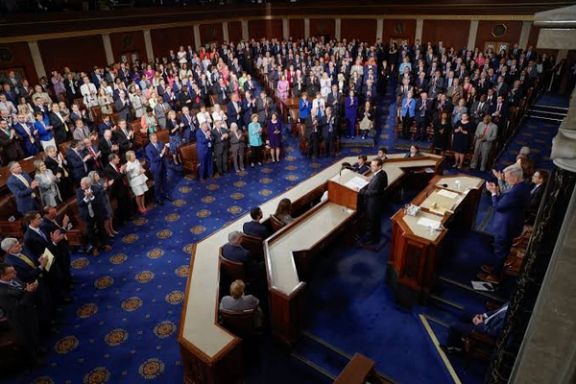
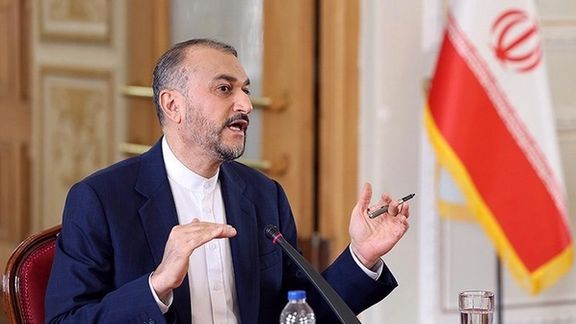
Iran's foreign minister claims there are ‘initiatives’ being discussed in the nuclear negotiations following discussions with his Omani counterpart in Tehran.
The primary objective of Omani FM Sayyid Badr Albusaidi's visit was to deliberate the JCPOA and further explore the ‘initiatives’ put forth by the Omani side in pursuit of resolving the nuclear agreement's impasse, Hossein Amir-Abdollahian revealed in a statement on Wednesday.
The unanticipated visit of Oman's senior diplomat sparked media speculation regarding the fate of the JCPOA revival talks. Notably, during the visit, Iran's market experienced a decline in the dollar's value to 480,000 rials, with media outlets like Etemad Online attributing this development to Minister Albusaidi's discussions in Tehran.
In light of this, Amir-Abdollahian stressed Oman's "dedication to bridging the gap between all parties involved in the JCPOA and restoring their adherence to the agreement's commitments.”
Oman has played a crucial role as a mediator between Iran and the United States in the nuclear negotiations, exemplified by the recent indirect talks reported between Tehran and Washington in Oman.
Highlighting the longstanding diplomatic ties, Amir-Abdollahian also referred to the Sultan of Oman's meeting with the leaders of the Islamic Republic during his visit to Tehran in late May. It was revealed that the discussions during the recent visit between the foreign ministers also included deliberations on the bilateral agreements between the two sides.

A leading centrist politician in Tehran says governance and politics in Iran have reached a deadlock and the people need to take the lead to help themselves.
Hossein Marashi, who is the Secretary General of the Executives of Construction, the leading centrist group, told a local website on Tuesday, "I have no hope in Iranian politicians. The elites in the society should come forward with determination and make their point, and whatever they need to do. I have hope that the people will change the scene."
This was an unprecedented pessimistic comment by a seasoned pragmatic politician who has always been an optimist.
Nonetheless, Marashi dismissed the idea of boycotting the upcoming parliamentary elections in March 2024. Some reformist politicians have suggested the idea as a reaction to hardliners barring moderate and reformist candidates from running for office in two previous votes.
Speaking about Faezeh Hashemi, a political heavyweight and one of the relatively popular politicians of the Executives of Construction Party who has spoken about the need to boycott the elections, Marashi said: "She should have waited for the party's final verdict about taking part in the election."
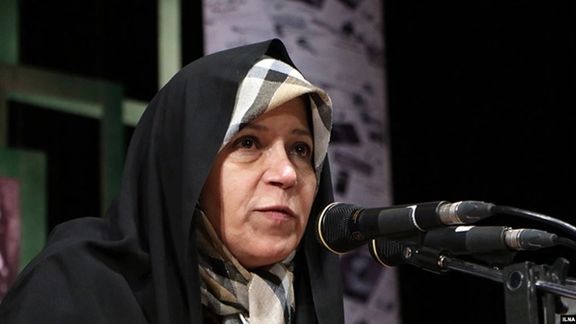
Marashi reiterated: "If the people do not come to the scene and do not take the lead in the management of politics, and lash out at politicians, no positive change is likely to occur in their life."
However, he did not say how people can bring about political change when the slightest gesture of protests or dissent is met with force and arrests.
However, the centrist politician oddly said, "We are waiting to see what way out the reformists will show to end this political impasse,” By putting the onus on those who have been pushed out of office by the hard core of the regime, Marashi added that the Reform Front has a great responsibility in coming up with a solution and we are waiting to see what they are going to do.
He acknowledged that the reformist faction is currently overwhelmed by despair as a result of the Guardian Council's "arbitrary supervision" which bars many politicians from running for the parliament or the presidency. He argued that any boycott of the elections will play into the hands of those who want to monopolize power.
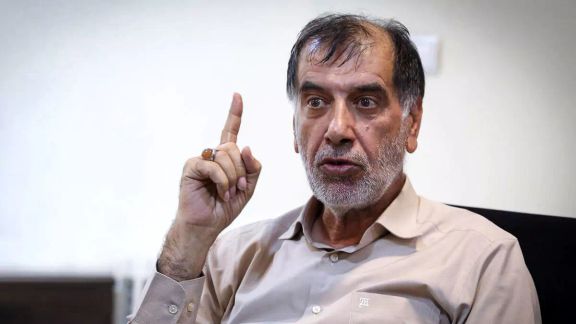
At the same time, conservative politician Mohammad Javad Bahonar spoke about the issue from another perspective. He said that as a result of the Guardian Council's selective treatment of election candidates, a majority of the members of parliament are so unprepared that they are not even familiar with their responsibilities as lawmakers. He also charged that many conservative lawmakers do not understand the country's situation.
However, as Marashi pointed out, "Politics is a battlefield where we should confront institutions that exert influence beyond the scope of their official authority. But political competition is not like going to a party. It is like dealing blows and at the same time being prepared to receive blows." He reiterated that reformists and moderates should be prepared for a fierce competition while everyone should accept that we need to revise the procedures in the interest of Iran's future.
Meanwhile, Marashi advised that hardliners should note that Iran is a diverse society and not everyone is a regime supporter who accepts its ideology by 100 percent. "This is a diverse society. There are Sunnis, there are those who have distanced themselves from religion and religious government, and there are those who believe in a different ideology. We need to do away with the monopolistic approach of a certain group of regime's supporters."
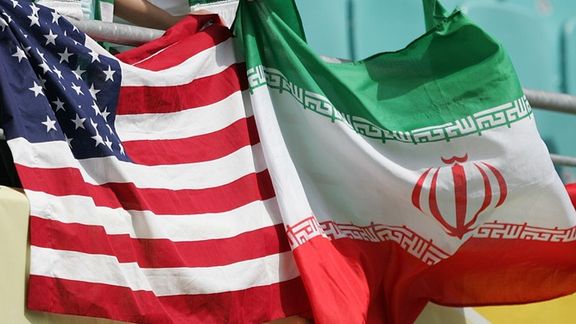
While the chances of reviving Iran’s 2015 nuclear appear dim, an Iranian politician claims that Washington and Tehran have established a hotline for communication.
Former chief of the Iranian parliament's national security and foreign policy committee Heshmatollah Falahatpisheh said Wednesday that “What exists between Iran and the United States now is similar to the 'red telephone line' that existed between the United States and the Soviet Union during the Cold War.”
He added, “I proposed a similar suggestion in the parliament to establish a direct hotline of communication between Iran and the United States to manage the tensions.”
Established in 1963, the Moscow–Washington hotline links the Pentagon with the Kremlin. Although the hotline was never a telephone line, and no red phones were used, in popular culture it is known as the "red telephone.”
His remarks come after recent reports that the two sides were striving to reach an unofficial unwritten agreement to prevent escalation. However, many US lawmakers from both sides of the aisle have called on the Biden administration to come clean about its dealings with the Iranian regime, particularly after the US special envoy Robert Malley was dismissed last month, with Congress in the dark.
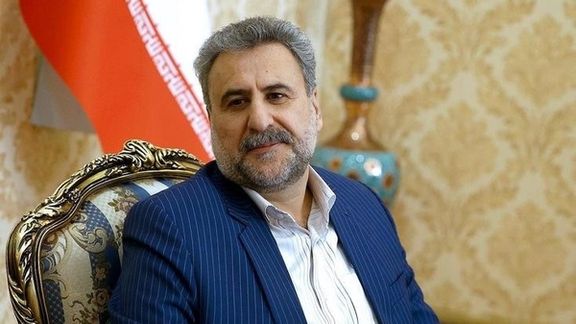
Falahatpisheh said that in a situation when reviving the JCPOA (Joint Comprehensive Plan of Action) seems practically unattainable, this kind of communication is the best possible outcome Iran and the United States could achieved.
“What is referred to as the 'unwritten agreement' is essentially the formation of this hotline for communication. Iran and the United States have not reached a formal agreement, but they are managing the existing tensions in their relationship,” he said.
He underlined that “The establishment of this hot line does not imply anything specific except that the two countries have direct and indirect (mostly secretive) interactions with each other at any given time, discussing tensions and preventing crises from escalating.” He made it clear that “there is no written agreement taking shape.”
The Biden administration says that it continues contacts with Tehran, but no nuclear or prisoner release agreement is imminent.
According to Falahatpisheh, Washington’s lax enforcement of sanctions on Iran's oil exports and Tehran’s tendency to avoid tensions in the Persian Gulf are the outcomes of such a mechanism to manage differences.
But some events could be seen as contradicting this scenario. The US military announced in early July that it intervened to prevent Iranian naval vessels from seizing two commercial ships in the Persian Gulf.
Pentagon announced on Monday that it was sending more warplanes and an additional warship to the region, mainly to provide maritime security.
Meanwhile, US lawmakers are intensifying efforts to restrict the Biden administration in its interactions with the Iranian regime.
On Monday, Michael McCaul (R-TX), the chairman of the US House foreign affairs committee, threatened a subpoena if the administration does not brief Congress on the circumstances of Rob Malley’s dismissal, noting that the State Department has been less than candid with his security clearance investigation.
However, the administration still sounds reluctant to divulge any information as White House Press Secretary Karine Jean-Pierre dodged questions about the investigation on Tuesday.
Moreover, on the backdrop of a flurry of Congressional initiatives and letters to the administration, eight Republican Senators wrote to Secretary of State Antony Blinken and the Secretary of the Treasury Janet Yellen, demanding more serious enforcement of US sanctions on Iran.
The senators raised the issue of China’s increasing oil imports from Iran, while US sanctions prohibit third parties from buying Iranian oil and oil products. “Despite sanctions, the People's Republic of China (PRC) has purchased roughly $47 billion in Iranian oil since President Biden took office,” the letter says.
Despite the push by lawmakers, Washington has made a change in the way Iraq pays Iran for electricity. According to an exclusive report by Reuters, the Biden administration on Tuesday moved to let Iraq pay Iran for electricity via non-Iraqi banks.